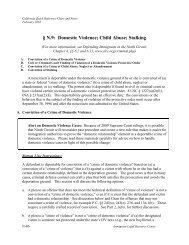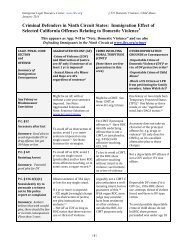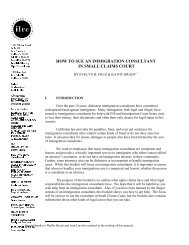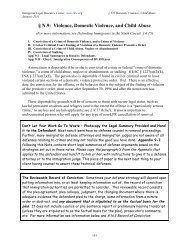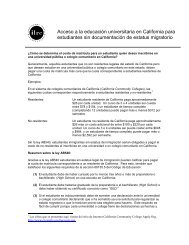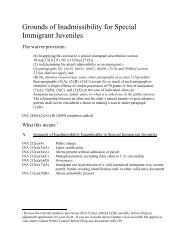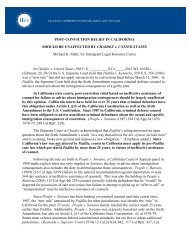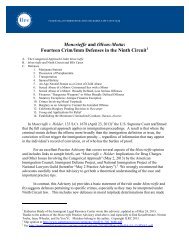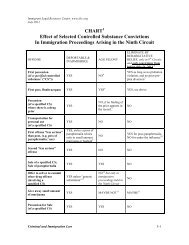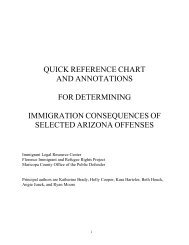Inspiring Leadership in Immigrant Communities - ILRC
Inspiring Leadership in Immigrant Communities - ILRC
Inspiring Leadership in Immigrant Communities - ILRC
- No tags were found...
Create successful ePaper yourself
Turn your PDF publications into a flip-book with our unique Google optimized e-Paper software.
<strong>Inspir<strong>in</strong>g</strong> <strong>Leadership</strong> <strong>in</strong> <strong>Immigrant</strong> <strong>Communities</strong>January 2003Appendix 7-ARead<strong>in</strong>g materials for participants on negotiation strategies§ 7A.1 Introduction to NegotiationNegotiation is communicat<strong>in</strong>g back-and-forth with someone to try to reach anagreement on someth<strong>in</strong>g. In some cases it means reach<strong>in</strong>g a compromise, <strong>in</strong> which bothsides give <strong>in</strong> a little.We, as well as our clients, negotiate every day. Families negotiate about what toeat for d<strong>in</strong>ner, when children must be home, and how much money to spend. People whowork together negotiate about who has to do what task. People negotiate with theirlandlord about fix<strong>in</strong>g the toilet and with a boss about tak<strong>in</strong>g time off from work. Mostpeople, whether they know it or not, have a lot of negotiat<strong>in</strong>g experience.When work<strong>in</strong>g with large <strong>in</strong>stitutions such as the INS or Department of SocialServices, negotiation is an important way for community members and leaders canresolve problems with the <strong>in</strong>stitution. Paralegals, lawyers, clients and communitygroups negotiate with INS, the Border Patrol, and other agencies. Negotiations alsooccur <strong>in</strong> schools, hous<strong>in</strong>g complexes, social services agencies, and with many other<strong>in</strong>stitutions.Depend<strong>in</strong>g on the circumstances, there are many different people <strong>in</strong>volved <strong>in</strong>negotiations. Often, someone has an advocate negotiate on his/her behalf. That advocatemight be a lawyer, caseworker, or other professional staff member of a LIRS affiliate oranother CBO. People also get family, friends, neighbors, or others to help them work outa problem through negotiation. People who volunteer at organizations such as the Parent-Teachers Association (PTA) assist with negotiation. Also, entire community groups ledby organizers and community members can negotiate on behalf of others <strong>in</strong> thecommunity. F<strong>in</strong>ally, the most common negotiator is you; that is, people negotiate forthemselves more often than they get others to negotiate on their behalf.It is important to note that <strong>in</strong> addition to the help that professionals provide,community members have important resources of their own: their own life experienceand problem-solv<strong>in</strong>g skills, and the help of friends and community. Friends, relatives,and community activists can help others <strong>in</strong> the community negotiate. They can providemoral support, help clients practice negotiat<strong>in</strong>g, and accompany the affected communitymember to the negotiation. Others <strong>in</strong> the community may be more assertive and havestronger English skills than the affected community member -- or even have experience<strong>in</strong> deal<strong>in</strong>g with the governmental agency or group with whom the negotiation is <strong>in</strong>tended.App.7-A-1



